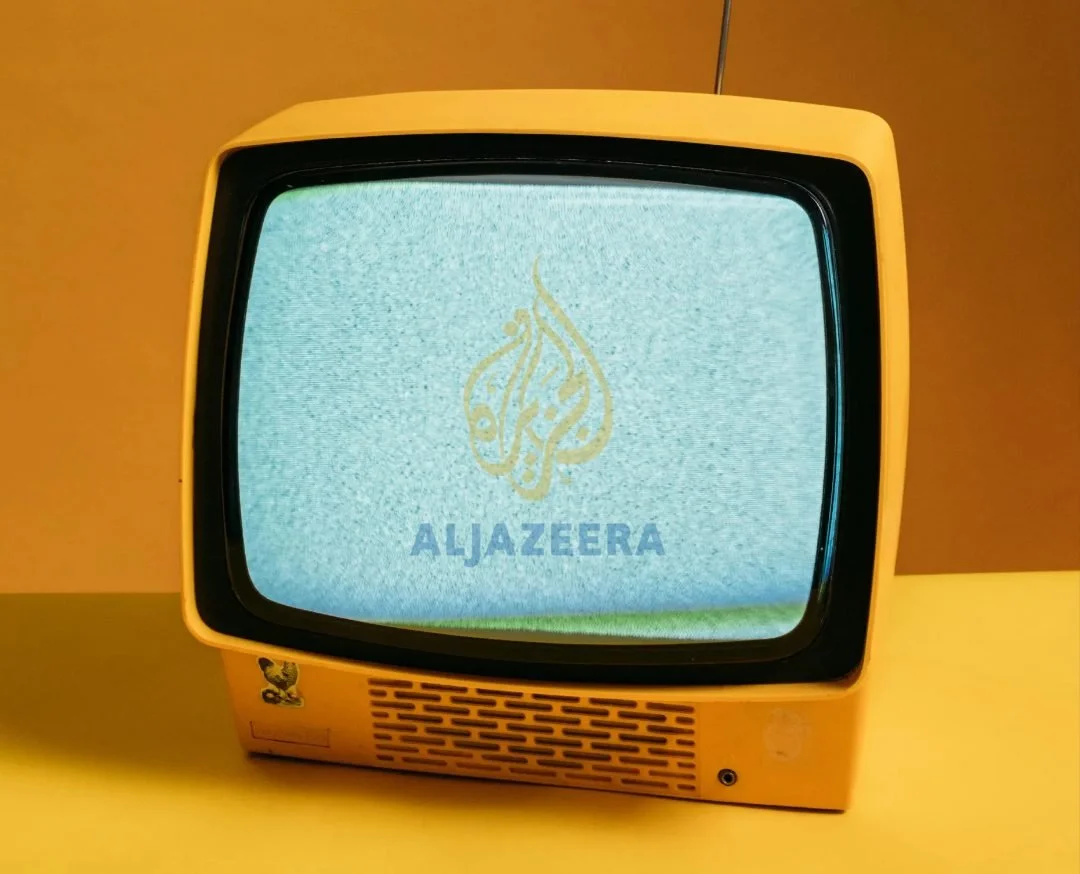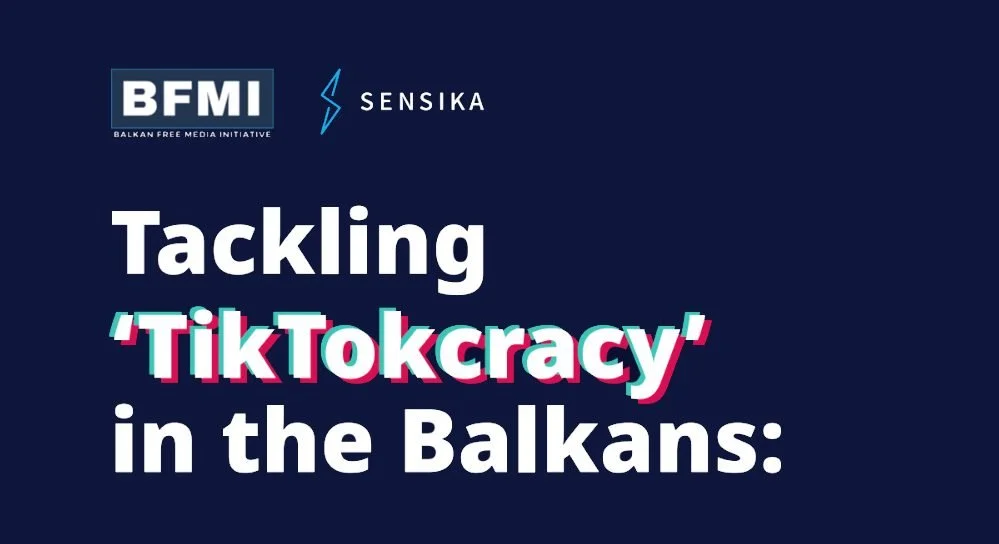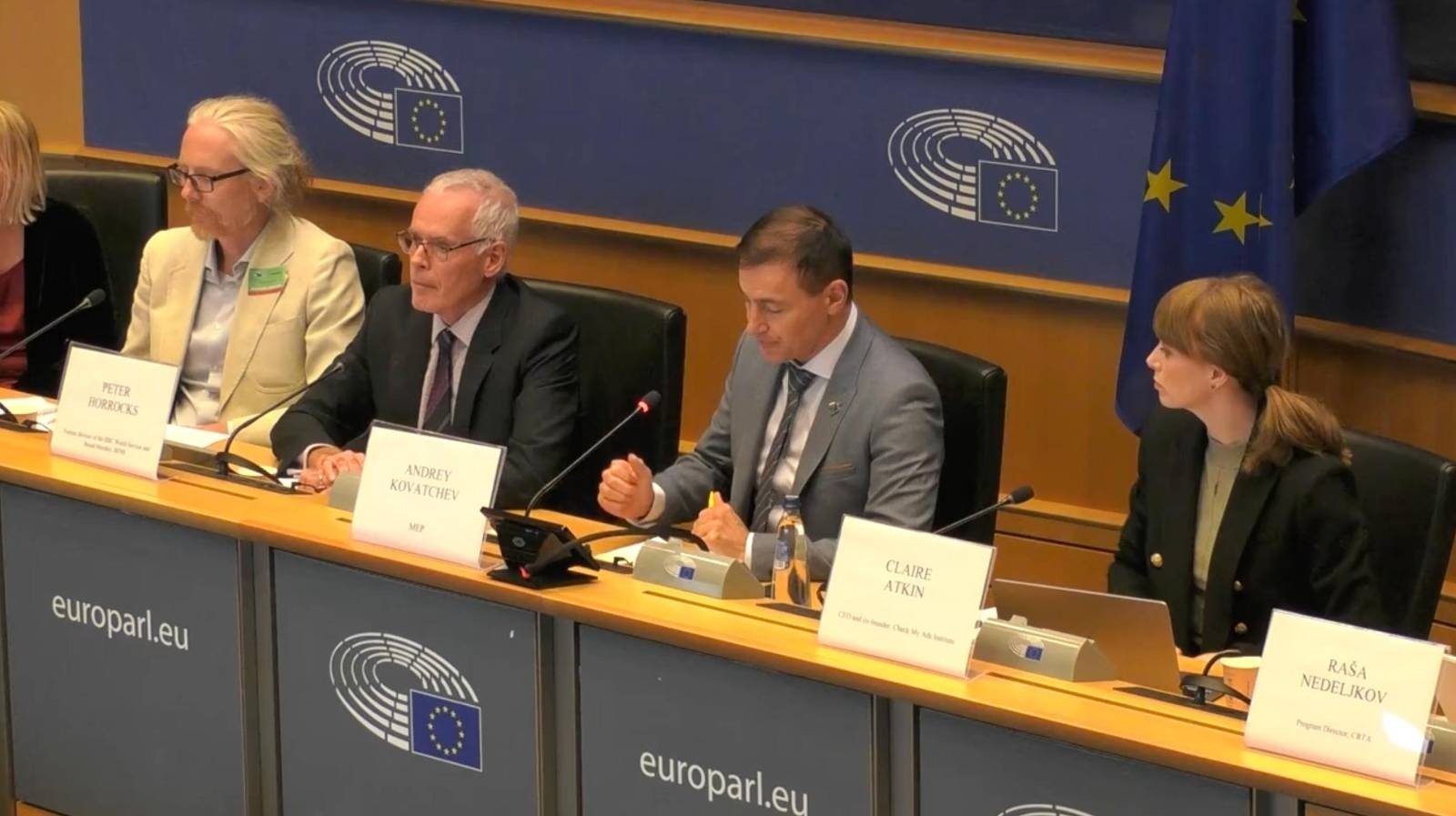
The Balkan Free Media Initiative is an independent Brussels-based organization addressing the gap in advocacy and accountability on media freedom issues in Southeastern Europe.
Journalism without Fear, Democracy without Limits
Latest Blogs
BFMI News Coverage
Latest Publications
How Algorithmic Power Shapes Democracy and Media Resilience in Europe by BFMI & Sensika
Hungarian media investment in the Balkans: a test for Europe's media law
By BFMI
The Invisible Hand of Media Censorship in the Balkans
By BFMI
Roberta Metsola
President of the European Parliament
“Europe is safer when we work together. So let's keep on this momentum.
Let's keep working together and let's keep strengthening democracy and media resilience across our shared continent.”
Speaking on the launch of BFMI’s report at the European Parliament, November 2025, President Metsola reaffirmed the Parliament’s commitment to safeguarding media freedom.
Campaigns and Advocacy
Defunding Disinformation in the Balkans
Major international brands may be unaware that their advertising revenues are funding and legitimising media outlets that disseminate disinformation on the Russia-Ukraine conflict, Kosovo and other divisive issues in the Balkans.
BFMI is working to ensure these brands are aware of their impact and take steps to defund disinformation in the Balkans.
Guiding Policymakers
BFMI runs regular awareness and advocacy campaigns and conducts research into topical media freedom issues affecting the Balkans. BFMI focuses on often overlooked structural issues around ownership, regulation and funding of the media that threaten democracy and stability.
Disinformation on Social Platforms
In countries where traditional media is largely under control by the state or commercial influences, social media is the last remaining lifeline for independent journalists and voices in the Balkans. At the same time, advanced technology is making social media channels a hotbed for disinformation.
BFMI is calling for stronger regulation of social media in the Balkans.
Our Coverage
-
Media Freedom in Albania is one of the poorest in the region. Political and commercial influence over media is a key threat.
-
Media Freedom has been in decline since 2022. BFMI is particularly concerned over increasing political interference in the media from Republika Srpska.
-
Media Freedom is improving, but Bulgaria remains particularly vulnerable to Russian state propaganda.
-
The Croatian government not only falls short in safeguarding journalists but also appears to endorse such hostilities.
-
Greece is suffering from one of the most severe deteriorations in the region; making the country the worst performing EU member state on media freedom.
-
Media Freedom in Kosovo is challenged by weak regulation and ethnic division exacerbated by pro-Kremlin disinformation.
-
Media Freedom in Montenegro is threatened by political interference and attacks on journalists without repercussion.
-
North Macedonia is highly vulnerable to foreign influence, and systemic challenges undermine media freedom.
-
Serbia is the worst performing country in terms of media freedom in the Balkans. Growing political interference is particularly concerning.
-
The media landscape is growing, but opaque ownership structures remain a challenge to media freedom.
















